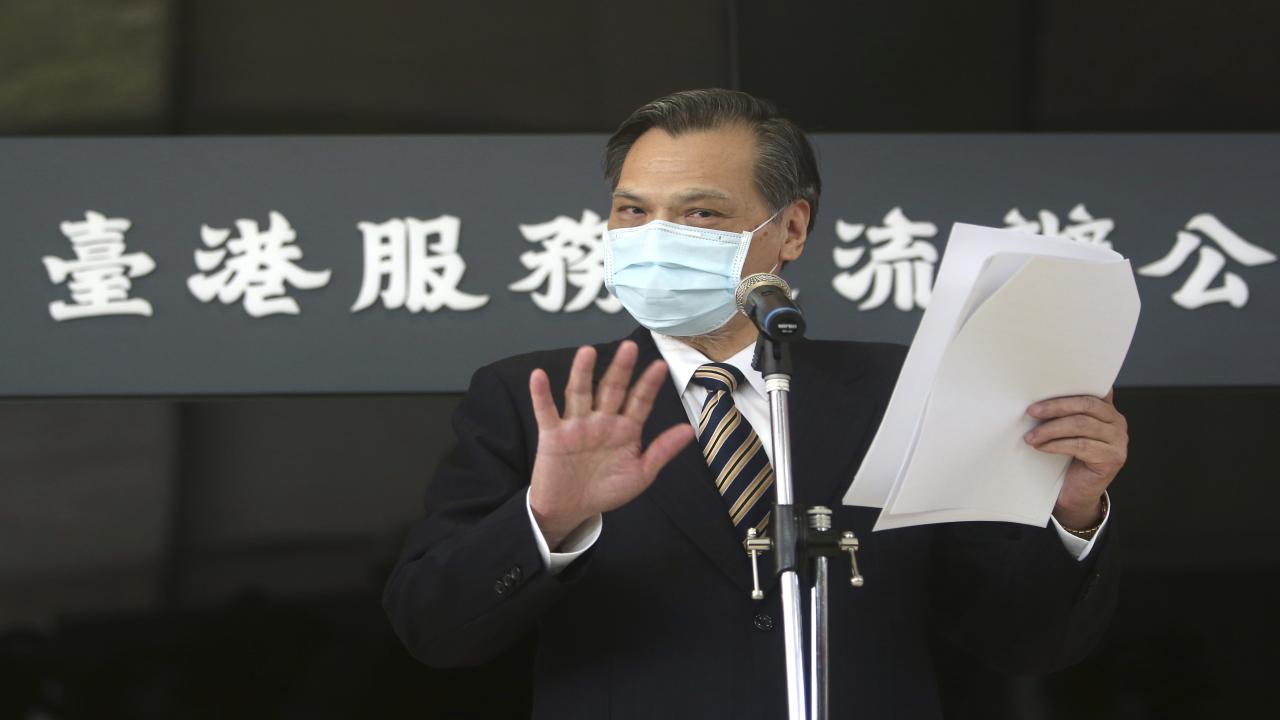
1.
Taiwanese must now begin to think about their own “Hong Kong issue” seriously. This is interest in Hong Kong based on universal values such as human rights and freedom, but it is also for the national interests of Taiwan. In addition, as the Hong Kong issue develops, a “(Taiwan’s own) Hong Kong issue” is also emerging, and its process and consequences need to be carefully observed.
2.
Taiwanese have been interested in the issues of Hong Kong. This is especially true after the adoption of “the Hong Kong National Security Law” (officially “the Law of the People’s Republic of China on Safeguarding National Security in the Hong Kong Special Administrative Region”). The major reason is that the law may be applied to Taiwanese as well as Hong Kongers. Because “the Hong Kong National Security Law” is also related to Taiwan, Taiwanese should be concerned about the future of Hong Kong.
That is clearly reflected in the results of opinion polls. For example, a survey by “the Asia-Pacific Elite Interchange Association” in Taiwan found that 56% of Taiwanese citizens believe “the Hong Kong National Security Law” would destroy Hong Kong’s One Country, Two Systems. A poll by “the Taiwanese Public Opinion Foundation” (released on June 22, 2020) showed that 76% of Taiwanese citizens were pessimistic about the future of Hong Kong, far higher than 12.2% who answered “optimistic.” [2]Not only are Taiwanese pessimistic about the future of Hong Kong, but also they have been made to seriously consider their own fate, seeing the power of Beijing reaching Hong Kong, and are concerned that Taiwan might become a <second Hong Kong>.
Needless to say, Hong Kong and Taiwan are different. The fate of the former was decided by Beijing and London and is still decided by Beijing. In contrast, today’s Taiwan elects its own leader by itself and controls its own destiny.
However, for Beijing, both of them are part of and indivisible from the People’s Republic of China, and the regions to which Beijing declared the implementation of “One Country, Two Systems”. Witnessing the destruction of Hong Kong’s freedom and democracy by Beijing, Taiwanese fear that “Hong Kong today will be Taiwan tomorrow”. Hong Kongers residing in Taiwan have also become increasingly concerned that their behavior in Taiwan might violate “the Hong Kong National Security Law” and that if it does, they may suffer harm, even though they are in Taiwan.
3.
For Taiwanese, “the Hong Kong National Security Law”, which destroyed “One Country, Two Systems”, was utterly unacceptable from political and humanitarian standpoints.
So far, Beijing has announced preferential treatment for Taiwan (especially its business world). But the results of the 2020 national election in Taiwan did not indicate the effect Beijing expected. From now on, the Taiwanese government and citizens will likely reject China’s preferential treatment for Taiwan (so-called favor-granting policies). Taiwan will be more resistant to China’s military intimidation so that “Hong Kong today will not be Taiwan tomorrow”. Within Taiwan, the cross-strait policies and defense policies of the Tsai Ing-wen administration are expected to be supported even more strongly.
In the eyes of the international community, Taiwan, which is located near China and has resisted its threat, is seen as a special and important country. In terms of security, the international community is watching Taiwan more closely than ever before, and the United States in particular intends to strengthen their cooperative relationship by selling advanced weapons to Taiwan. Ironically, it could be said that the heightened military threat from China has made Taiwan safer than ever.
4.
From Hong Kongers’ point of view, Taiwan should be a safe haven. Following the adoption of “the Hong Kong National Security Law”, more and more Hong Kong citizens are considering emigrating or have decided to emigrate to Taiwan. An opinion poll by Foreign Policy magazine (survey period: June 22 to 26, 2020) shows that as many as 50% of Hong Kong citizens are considering emigrating after the enactment of “the Hong Kong National Security Law”. Among the destinations, Taiwan is the most popular choice, accounting for 30%. [3]
Statistics of the Taiwanese government (the National Immigration Agency, the Ministry of Interior, the Executive Yuan) indicate that 5,858 Hong Kongers acquired qualification to reside in Taiwan (long stay) in 2019, an increase of 41.4% from 4,148 in 2018. And 1,474 people acquired qualification for permanent residence in 2019, up 35% from 1,090 in 2018. [4]
Incidentally, there are statistics on the number of people from Hong Kong and Macau registered in Taiwan. As of 2019, the total number of them in Taiwan was 11,009, an increase of 1,460 from 2018. Even when looking at only the six special municipalities, there has been an increasing trend in the past few years, as shown in the following table. As of 2019, the number was 9,318. When people from Hong Kong or Macau move to Taiwan, they tend to concentrate in those six special municipalities.
Table: The number of people from Hong Kong and Macau registered in Taiwan by city
|
|
2017 |
2018 |
2019 |
|
Taipei |
1,964 |
2,148 |
2,418 |
|
New Taipei |
2,164 |
2,442 |
2,774 |
|
Taoyuan |
826 |
965 |
1,126 |
|
Taichung |
945 |
1,138 |
1,392 |
|
Tainan |
377 |
429 |
496 |
|
Kaohsiung |
813 |
945 |
1,112 |
|
Nationwide |
8,428 |
9,549 |
11,009 |
Among the six special municipalities, most people are registered in New Taipei, especially in the Tamsui and Linkou districts. The major reasons include the low cost of living, convenient transportation (especially trains i.e., Mass Rapid Transit or MRT), and proximity to Taipei.
By occupation, the number of Hong Kong immigrants shows a similar trend of increase. [5]
Table: Number of Hong Kong immigrants in Taiwan by industry
|
|
2018 |
2019 |
|
Wholesale and retail |
410 |
886 |
|
Specialists in science and technology |
117 |
204 |
|
Information, communications, and media |
93 |
131 |
|
Accommodation and restaurant services |
59 |
74 |
|
Finance and insurance |
43 |
65 |
5.
Turning our eyes to Taiwan, it seems that Taiwanese society has not yet been mentally prepared to accept Hong Kong immigrants. The aforementioned survey of “the Taiwan Public Opinion Foundation” revealed that 50.5% of Taiwanese answered “disagree,” higher than 41.5% who answered “agree” (to a question about accepting Hong Kong immigrants).
To the best of my knowledge, the Taiwanese government has not conducted any opinion polls regarding the reaction and opinions of Taiwanese about Hong Kongers’ immigration to Taiwan (or the sustained increase in Hong Kongers residing in Taiwan). As immigrants from Hong Kong increase, it will be necessary to conduct surveys to detect the reaction of Taiwanese society. Greater immigration will inevitably affect Taiwan’s economy, society, and politics.
(1) Economic aspect
Like Japan, Taiwan is experiencing a declining birthrate and an aging population. Therefore, if a large number of Hong Kong engineers immigrate to Taiwan, they will contribute to Taiwan’s economic development. The Taiwanese government has already begun to attract the elite of Hong Kong. For the financial industry in particular, the Taiwanese government has set out measures to attract highly skilled human resources in four areas: investment operations, high-level wealth management, fintech, and the development and design of new financial products.
The education industry also expects human resource inflow from Hong Kong. If young people from Hong Kong study in Taiwan, universities in Taiwan (especially private universities) that are financially suffering from the low birthrate can mitigate their financial difficulties slightly. In recent years, there have been several universities that were forced to close due to the low birthrate and difficulty in recruiting students.
In order to avoid the suspension of operations, some universities signed the so-called “letter of accepting the one-China policy” with the Chinese side so as to attract students. “The letter of accepting the one-China policy” is a document guaranteeing that when students are invited from a Chinese university, the class will not deal with politically sensitive issues. Of course, signing such a letter is unavoidable for private universities. However, it inevitably became a political issue in Taiwan and generated criticism. This suggests how much universities want students.
Under these circumstances, universities in Taiwan would be very grateful if they could increase the number of students as much as possible through immigration from Hong Kong. As indicated by examples in the United States, excellent Hong Kong students would be a stimulus to local students in Taiwan, leading to better academic standards. Good international students who stay in Taiwan after graduation for work should also make a good labor force.
(2) Political aspect
On the other hand, the political prospects are less optimistic than the economic ones. This is because Hong Kongers’ immigration to Taiwan could have political impacts in the medium to long term. In other words, if Hong Kongers residing in Taiwan increase to a certain extent and they acquire citizenship, the Hong Kong people will become a voting bloc and be able to influence Taiwanese politics through elections.
Let us take the example of Linkou District in New Taipei mentioned above. The population of Linkou District is about 120,000, of which about 70,000 are eligible voters. If you can only obtain 20,000 of those votes, you can control the outcome of an election of the district administrator. Even if not all Hong Kongers who want to move to Taiwan chose Linkou as their residence, this fear may not be groundless given the current speed of immigration and the geographical conditions of Linkou (a metropolitan area).
In fact, it seems that phenomena considered to be caused by the influence of Hong Kongers have already occurred in Taiwanese politics. In this regard, a recent lecture in Taipei deserves attention. Stanley Fung, a former Hong Kong film actor who has lived in Taiwan for 32 years, was invited by the Nationalist Party to speak. Regardless of the content of the talk, the fact that the lecture was widely reported by the mass media due to Fung’s fame would mean enough publicity for the Nationalist Party.
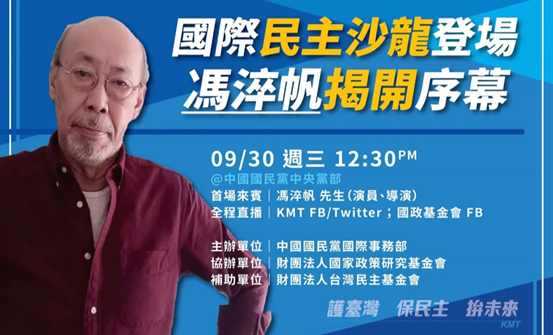
There were other examples of Hong Kongers apparently influencing Taiwan politics. It is well known in Taiwan that the actor Chapman To does not conceal his opposition and protest against the authoritarian government of Hong Kong. Even now, the media occasionally takes up his words “Hong Kong has lost, so Taiwan must not lose,” which he said at a concert in Taiwan in 2017.
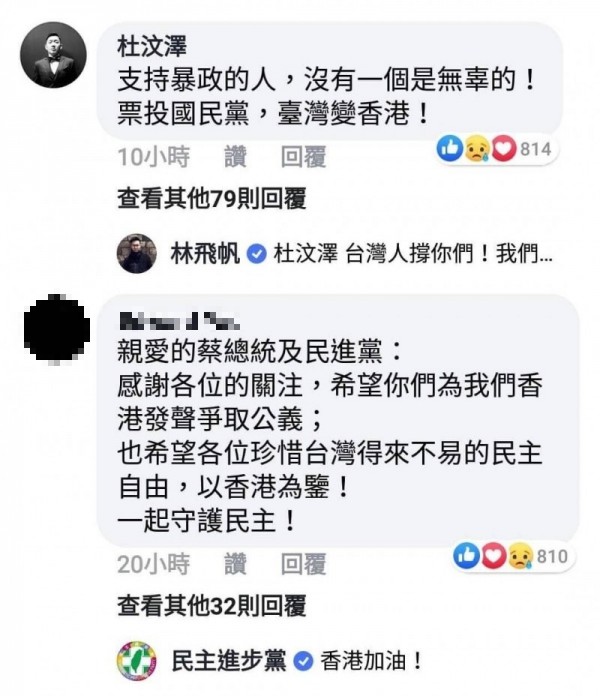
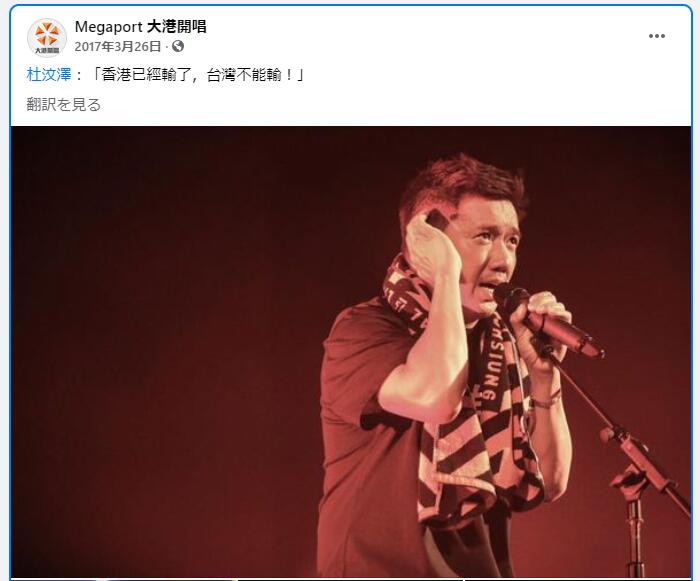
What is important here is the tendency of which party these actors and entertainers support in Taiwanese politics. While Mr. Fung is close to the opposition Nationalist Party, Mr. To and Mr. Wong are said to be closer to the ruling Democratic Progressive Party. In 2019, a comment by Mr. To on the Facebook page of the Democratic Progressive Party said “If you vote for the Nationalist Party, Taiwan will become Hong Kong!” This was reported in the news. [6]Another Hong Kong actor Wong Chau-sang (Anthony Wong) has also expressed his support for the demonstrations in Hong Kong, and his related comments have often been reported in Taiwan. So his plan to move to Taiwan has become big news in Taiwan.
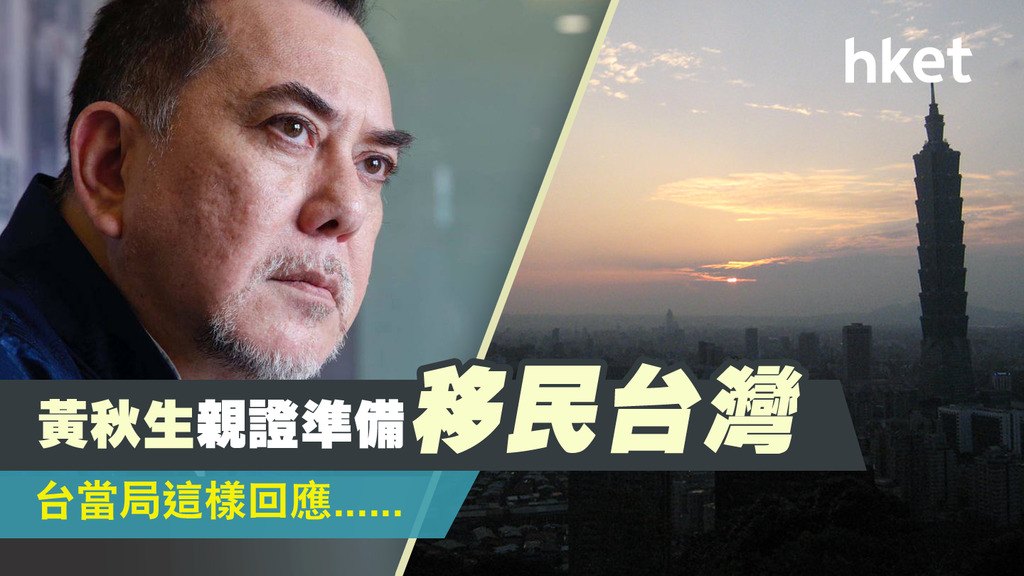
Mr. To recently participated in an online live event hosted by Lim Tshiong-Tso (Freddy Lim), a Taiwanese legislator. [7]
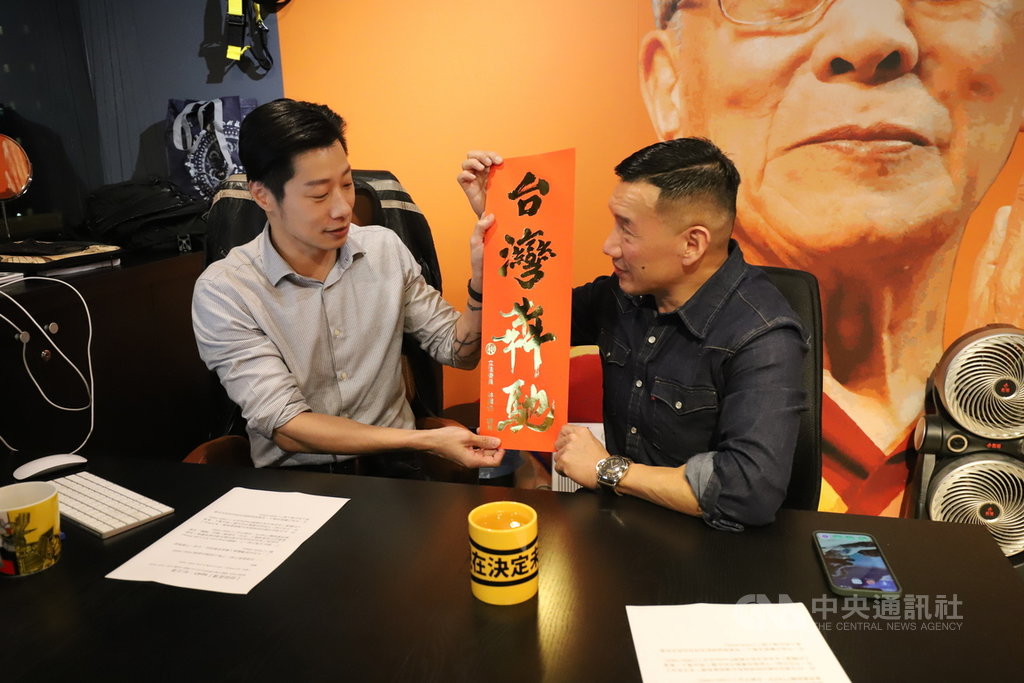
From this perspective, the political influence of Hong Kongers already cannot be ignored by Taiwanese politicians. Every election season, Hong Kongers’ presence will probably be spotlighted.
However, there are some problems lurking there.
The presence in Taiwan and the effectiveness of publicity by the media are opportunities for Hong Kongers, especially activists. To begin with, however, there is a political confrontation in Taiwanese society between pro-Taiwanese-identity and pro-China politicians (it is often interpreted as a conflict between “independence vs. unification”). Among Hong Kongers, there is a conflict between supporters of Hong Kong and those of Beijing. If Hong Kongers residing in Taiwan increase their influence on regional politics in Taiwan, such as elections of district administrators, and at the same time there arises a political confrontation among Hong Kongers residing in Taiwan, uncertainty in Taiwan politics may increase as a result of those two factors working together.
Furthermore, if China attempts to take advantage of this opportunity to influence Taiwan, the internal conflict among Hong Kongers in Taiwan would be one possible route to do so. In fact, last year, the Hong Kong democratization movement caused conflict between a group of students from Hong Kong and a group of students from China in universities in Taiwan.
Then the Taiwanese government was placed in a somewhat complicated position. On the one hand, the government does not have a choice of ignoring it, and must intervene anyway. On the other hand, if the Taiwanese government judges it, the side who considers themselves as at a disadvantage may ask Taiwanese politicians close to them for assistance. In this case, the confrontation would escalate both within the immigrant camp and within Taiwanese society. The Taiwanese government would have further difficulty in the face of three sorts of confrontation that should be “respectively independent but tend to link with each other”: <supporters of Hong Kong vs. supporters of Beijing> within Hong Kongers; <supporters of supporters of Hong Kong vs. supporters of supporters of Beijing> within Taiwanese society; and <the anti-China group vs. the pro-China group> within Taiwanese politics. Against the backdrop of the rapid increase in Hong Kongers residing in Taiwan, at least “how to avoid the political use of Hong Kongers in Taiwan by Beijing” will become an important issue for the Taiwanese government.
(3) Social (social order) aspect
As seen in the opinion poll mentioned earlier, there are some Taiwanese who are cautious about immigration of Hong Kongers. One of the reasons for the reluctance of Taiwanese citizens to accept Hong Kongers seems to be their consideration of social order issues.
First, in relation to the confrontation between China and Taiwan, there is a concern in Taiwanese society that Hong Kongers who came to Taiwan as refugees might be actually the “fifth column” (spies) of the Chinese Communist Party to disturb Taiwanese society? Although the existence of “the fifth column” has not been confirmed or disclosed in recent years, experts have been already discussing its risks seriously, and defense map exercises also consider relevant scenarios. Therefore, it can be assumed that “the fifth column” would destroy “critical infrastructures” such as hospitals, power plants, and dams in Taiwan.
Even if fundamental infrastructures are not destroyed, “the fifth column” can cause security problems in conspiracy with gangsters in Taiwan. It would instigate an uneasy feeling among ordinary citizens and, in turn, create antipathy toward the government. It would not only disrupt social order, but also have the effect of undermining citizens’ trust in the government. During an election season, Hong Kongers who became naturalized citizens of Taiwan with the right to vote could be covertly intimidated, with words like “we will retaliate against you if you fail to vote for XX Party’s candidate.”
In December, news broke that the Hong Kong actor Charles Heung had applied for residence in Taiwan. [8]Even though he is an actor, he still supports Beijing when it comes to politics. Moreover, it has long been rumored that Mr. Heung’s father was the founder of a Hong Kong gang called “Sun Yee On” and that Mr. Heung himself is the leader of “Sun Yee On”. His son (Jacky Heung) is said to be a member of the All-China Youth Federation under the Communist Youth League of China. Such person’s application for residence should be examined based on comprehensive consideration. This is all the more so because he has declared his support for the enactment of “the Hong Kong National Security Law”.
In January 2019, when Tony Chung, an executive member of the Hong Kong independence activist group “Studentlocalism”, visited Taiwan, another Hong Konger residing in Taiwan asked a detective agency in Taiwan to follow him. The detective agency took pictures of him, and provided them to the Chinese media. [9]In September of the same year, a demonstration parade was held in Taipei to support Hong Kong citizens. Somebody poured red paint on the Hong Kong singer Denise Ho after she participated in the parade. The perpetrator was reportedly ordered to commit the crime by top officials of Taiwan’s pro-China party “Chinese Unification Promotion Party”. In April of this year (2020), Lam Wing-kee, the former manager of Causeway Bay Books in Hong Kong who was detained by the Chinese government in 2015, was also assaulted with paint poured on him in Taipei, where he was then staying. In October, someone broke into and scattered filth around a restaurant in Taipei called “Aegis”, which supports Hong Kong pro-democracy demonstrators taking refuge in Taiwan. The investigation found that a (mainland) Chinese person was behind the crime. [10]
6.
Needless to say, these incidents are shocking to both Hong Kongers and Taiwanese society. If the Taiwanese government fails to respond strongly and a similar incident occurs again, it will scare liberal Hong Kongers in Taiwan and make Hong Kongers who wish to move to Taiwan take refuge in other towns.
In the first place, the immigration of Hong Kongers to Taiwan is a complicated issue. If the Taiwanese government deals with the situation effectively, a “Hongkong Town” would eventually emerge somewhere in Taiwan. Taiwan would become their home instead of a foreign country as a port of refuge. I pray that when such day comes, both Taiwanese and Hong Kongers residing in Taiwan will be able to cherish and protect Taiwan, their home, together.
[1] Lin Chau-yi, “Survey on the Hong Kong National Security Law: 56% of Taiwanese Believe That Hong Kong’s One Country, Two Systems Will Be Destroyed,” New Talk, May 25, 2020, https://newtalk.tw/news/view/2020-05-25/411588.
[2] “June 2020 ‘Emergency in Hong Kong, the Cross-Strait Relations and Democracy in Taiwan,” Taiwan Public Opinion Foundation, June 22, 2020, https://www.tpof.org/%e7%b2%be%e9%81%b8%e6%96%87%e7%ab%a0/2020%e5%b9%b46%e6%9c%88%e3%80%8c%e9%a6%99%e6%b8%af%e8%ae%8a%e5%b1%80%e3%80%81%e5%85%a9%e5%b2%b8%e9%97%9c%e4%bf%82%e8%88%87%e5%8f%b0%e7%81%a3%e6%b0%91%e4%b8%bb%e3%80%8d/.
[3] “Taiwan Becomes the First Choice of Hong Kong Emigrants, Taiwan-Hong Kong Service Exchange Center Accepts More than 700 Inquiries on July 9,” Radio France Internationale, July 10, 2020, https://www.rfi.fr/tw/%E4%B8%AD%E5%9C%8B/20200710-%E5%8F%B0%E7%81%A3%E6%88%90%E7%82%BA%E6%B8%AF%E4%BA%BA%E7%A7%BB%E6%B0%91%E9%A6%96%E9%81%B8%E5%8F%B0%E6%B8%AF%E6%9C%8D%E5%8B%99%E4%BA%A4%E6%B5%81%E8%BE%A69%E6%97%A5%E6%8E%A5700%E5%A4%9A%E6%9F%A5%E8%A9%A2%E6%B1%82%E5%8A%A9.
[4] “Hong Kongers Coming to and Residing in Taiwan Increases after Hong Kong’s Return to China, Topping 5,000 People in 2019,” The Central News Agency, May 24, 2020, https://www.cna.com.tw/news/firstnews/202005230207.aspx.
[5] “From Immigrant Companies, the Investment Review Committee to Tamsui, Departing Hong Kong and Arriving to Taiwan, Their Choice and Barriers,” The Reporter, October 15, 2020, https://www.twreporter.org/a/hongkonger-immigrate-to-taiwan-process.
[6] “Hong Kong Star Chapman To: If You Vote for the Nationalist Party, Taiwan Will Become Hong Kong!” The Liberty Times, July 23, 2019, https://news.ltn.com.tw/news/politics/breakingnews/2860960.
[7] “Chapman To Comes to Taiwan to Film Life of Hong Kong Immigrants, Joining Freddy Lim Attracts 300,000 Viewers [Video],” The Central News Agency, December 24, 2020, https://www.cna.com.tw/news/amov/202012240139.aspx.
[8] “’Lung Ng’ Charles Heung Applied for Residence in Taiwan with His Family, the Mainland Affairs Council Confirms,” The Central News Agency, December 24, 2020, https://www.cna.com.tw/news/firstnews/202012240307.aspx.
[9] “Hong Konger involved in ‘following’ democracy activists deported,” Focus Taiwan, October 25, 2020, https://focustaiwan.tw/cross-strait/202010250005.
[10] “Chinese national instigated feces attack on Taipei restaurant: prosecutors,” Focus Taiwan, November 9, 2020, https://focustaiwan.tw/society/202011090015.
カテゴリー
最近の投稿
- 習近平の思惑_その1 「対高市エール投稿」により対中ディールで失点し、習近平に譲歩するトランプ
- 記憶に残る1月
- 高市圧勝、中国の反応とトランプの絶賛に潜む危機
- 戦わずに中国をいなす:米国の戦略転換と台湾の安全保障を巡るジレンマ
- トランプ「習近平との春節電話会談で蜜月演出」し、高市政権誕生にはエール 日本を対中ディールの材料に?
- A January to Remember
- Managing China Without War: The U.S. Strategic Turn and Taiwan’s Security Dilemma
- 「世界の真ん中で咲き誇る高市外交」今やいずこ? 世界が震撼する財政悪化震源地「サナエ・ショック」
- 中国の中央軍事委員会要人失脚は何を物語るのか?
- 個人の人気で裏金議員を復活させ党内派閥を作る解散か? しかし高市政権である限り習近平の日本叩きは続く

